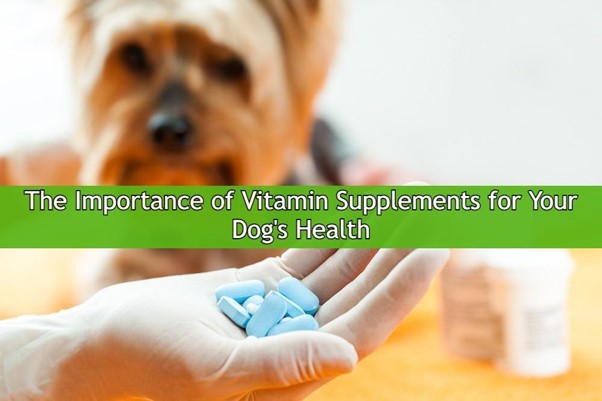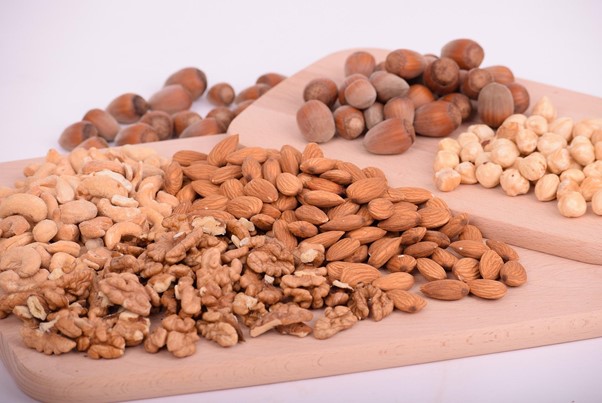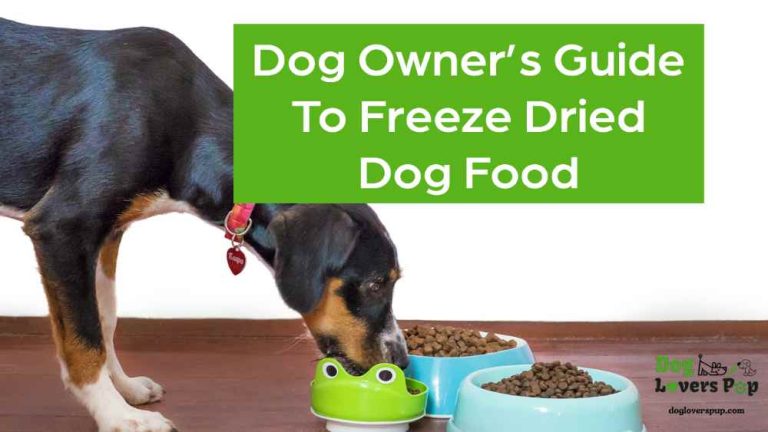The Importance of Vitamin Supplements for Your Dog's Health
- Last updated on April 7, 2023
- By: Caroline Stowe
Vitamins are essential components of a dog’s diet, as they are important for the proper functioning and development of your pet’s body.
Unfortunately, most commercial dog foods do not provide the full spectrum of vitamins necessary for optimal health.
To make sure your pup is getting all the vitamins it needs, you may need to supplement its diet with vitamin supplements.

Essential Vitamins for Dogs
There are 13 essential vitamins that dogs need to maintain good health. These include:
Vitamin A
Vitamin A is essential for cell growth, tissue repair, and vision. It also strengthens the immune system and helps with the production of red blood cells.
Vitamin A can be found in meat, eggs, and dairy products.
Vitamin B1 (Thiamine)
Thiamine is important for proper nervous system function. It helps with energy metabolism and aids in the management of stress levels. Thiamine can be found in lean meats, whole grains, legumes, and nuts.
Vitamin B2 (Riboflavin)
Riboflavin helps with energy production and metabolism. It also aids in the maintenance of healthy skin and eyesight.
Riboflavin can be found in dairy products, dark leafy greens, legumes, and nuts.
Vitamin B3 (Niacin)
Niacin helps with energy production, digestion, and circulation. It also aids in the maintenance of healthy skin and nerves. Niacin can be found in lean meats, fish, legumes, and nuts.
Vitamin B6 (Pyridoxine)
Pyridoxine helps with the metabolism of proteins and carbohydrates. It also aids in the development of red blood cells and nervous system function.
Pyridoxine can be found in poultry, fish, whole grains, legumes, and nuts.

Vitamin B5 Pantothenic
Pantothenic acid, also known as vitamin B5, is an essential vitamin for dogs. It helps with the metabolism of carbohydrates, proteins, and fats and aids in energy production.
Pantothenic acid is also important for proper skin and hair growth, the development of the nervous system, and hormone production.
Additionally, it helps with the absorption of other vitamins, such as vitamins B6 and B12. Pantothenic acid can be found in meats, dairy products, nuts, grains, and legumes.
Vitamin B12 (Cobalamin)
Cobalamin helps with the metabolism of fats and carbohydrates. It also aids in the development of red blood cells and nervous system function.
Cobalamin can be found in lean meats, poultry, fish, eggs, and dairy products.
Folic Acid
Folic acid helps with the development of red blood cells and tissue growth. It also aids in the prevention of birth defects when taken during pregnancy. Folic acid can be found in dark leafy greens, legumes, nuts, and seeds.
Vitamin D
Vitamin D helps with the absorption of calcium and phosphorus. It is also important for bone health and the development of teeth and muscles.
Vitamin D can be obtained from sunlight, as well as from certain foods, such as fish and egg yolks.
Vitamin C
Vitamin C is an antioxidant that helps protect cells from damage caused by free radicals. It also aids in wound healing, iron absorption, and immune system function.
Vitamin C can be found in fruits and vegetables, such as oranges, lemons, bell peppers, and broccoli.
Vitamin D
Vitamin D helps with calcium absorption, bone growth, and immune system function. It can also aid in the prevention of osteoporosis.
Vitamin D can be found in fatty fish such as salmon, tuna, mackerel, herring, liver, egg yolks, fortified milk, fortified cereals, fortified juices, and cod liver oil.

Vitamin E
Vitamin E is an essential vitamin for dogs that helps protect cells from damage caused by free radicals and supports the immune system. It also aids in wound healing and skin health.
Vitamin E can be found in vegetable oils, nuts, seeds, green leafy vegetables, and the liver.
Choline
Choline is an essential vitamin for dogs that helps with a variety of bodily functions.
It aids in the formation of cell membranes, helps to regulate neurotransmitter function, and aids in fat metabolism.
Choline is also involved in neurological development and fundamental memory functions, as well as muscle movement and coordination.
Additionally, it plays a role in the production of hormones, such as estrogen and testosterone. Choline can be found in meats, dairy products, eggs, legumes, nuts, and fish.
Benefits of Vitamin Supplements for Your Dog's Health
Vitamin supplements can provide the essential vitamins your pup needs to stay healthy. Following are the top benefits of vitamin supplements for your dog’s health:
Better Digestion
Vitamins help break down food so that your dog can absorb all the nutrients they need.
Without enough vitamins, your dog could suffer from nutrient deficiencies, digestive problems, and a weakened immune system.
Probiotics are a type of vitamin that’s especially important for digestion because they help balance the good and bad bacteria in your dog’s gut.
Stronger Bones and Teeth
Vitamin D helps your dog absorb calcium, which is essential for strong bones and teeth.
Vitamin D also helps prevent osteoporosis, a condition that weakens bones and makes them susceptible to fractures.
Shinier Coat and Healthier Skin

Vitamins A and E help keep your dog’s coat shiny and its skin healthy. They also play a role in cell regeneration, which is important for wound healing.
Omega-3 fatty acids are another type of vitamin that’s great for your dog’s coat and skin. These fatty acids help reduce inflammation, keeping your dog’s skin looking its best.
Increased Energy Levels
B vitamins are essential for energy production, so if your pup is feeling sluggish, it may be deficient in these nutrients. B vitamins also help the nervous system function properly and support red blood cell production.
Improved Immunity
Vitamins C and E are antioxidants that help protect cells from damage caused by free radicals.
Free radicals are unstable molecules that can contribute to disease and premature aging. Antioxidants help fight free radicals and keep your pup healthy by boosting immunity.
Better Eyesight
Several vitamins are important for eye health, including vitamins A, C, and E. These nutrients help protect against age-related vision problems like macular degeneration and cataracts.
Heart Health
Omega-3 fatty acids play an important role in heart health by reducing inflammation throughout the body, including the arteries.

This can help prevent heart disease by keeping arteries clear of plaque buildup.
Vitamins B6 and B12 are also important for heart health because they help regulate homocysteine levels.
High levels of homocysteine have been linked to an increased risk of heart disease.
Brain Function
Omega-3 fatty acids not only support heart health but brain health as well. These essential nutrients play a role in cognitive function, memory, and mood.
B vitamins are also important for brain health because they support energy production and help protect against age-related cognitive decline.
Joint Health
Omega-3 fatty acids work to reduce inflammation throughout the body, including in the joints. This can help relieve joint pain associated with conditions like arthritis.
Glucosamine is another type of nutrient that’s great for joint health. This nutrient helps repair cartilage, which cushions the joints.
Chondroitin sulfate is another type of nutrient that supports joint health by helping maintain cartilage elasticity.
Pregnancy And Lactation Support
If you’re feeding a pregnant or lactating bitch, she’ll need extra vitamins, minerals, and calories to support her growing litter.
Prenatal vitamins can help ensure that she gets all the nutrients she needs during this time.
Vitamin D is especially important during pregnancy because it helps the body absorb calcium, which is essential for fetal development.
How to Choose the Right Vitamin Supplement for Your Dog
With so many options available on the market, it can be overwhelming to try and figure out which vitamin supplement is best for your dog.
Don’t worry! We’ve got you covered! Let’s take a look at some of the things you should consider when selecting the right vitamin supplement for your dog.
Species And Breed Considerations
The first thing to consider when choosing a vitamin supplement for your pup is their species and breed.
Different breeds of dogs have different needs, and some may require specific vitamins or nutrients that others do not need.
For example, large-breed dogs often require more glucosamine than smaller-breed dogs because they tend to experience more joint pain and stiffness due to their size.
Similarly, puppy diets typically contain higher levels of calcium than adult diets since puppies are growing rapidly and need extra calcium for strong bones and teeth development.

Age And Activity Level Considerations
It is also important to take into account your dog’s age as well as their activity level when selecting a vitamin supplement for them.
Puppies will benefit from higher levels of certain nutrients such as calcium, while senior dogs may have different requirements that are tailored toward maintaining mobility or cognitive function in older age.
Additionally, if your pup is an active breed or enjoys a lot of physical activities (like running or playing fetch), it may require additional vitamins and minerals that can help them maintain energy levels throughout the day.
Product Quality Considerations
Finally, it’s important to look at the quality of the product you’re considering purchasing for your pup.
Read labels carefully! Look for products with natural ingredients, no fillers or additives, and third-party certifications like USDA Organic or Non-GMO Project verified if possible.
Also, check reviews from other pet owners who have used the product before making a purchase decision.
This will help ensure that you are getting a quality product that meets all of your pup’s needs!
Common Side Effects and Precautions When Giving Vitamin Supplements to Dogs
When it comes to vitamins, we often think that more is better. However, this isn’t always the case, especially when it comes to giving vitamin supplements to our furry friends.
Just like with any medication, there are potential side effects that come with giving your dog vitamins.
That’s why it’s important to be aware of these side effects before you start supplementing your dog’s diet. Some of the side effects are:
Diarrhea
One of the most common side effects of giving vitamin supplements to dogs is diarrhea. While diarrhea itself isn’t necessarily dangerous, it can lead to dehydration which can be very dangerous for dogs (and any other animal).
If your dog is experiencing diarrhea after taking a vitamin supplement, make sure to give them plenty of water and contact your veterinarian as soon as possible.
They may need to adjust the dosage or switch supplements entirely.

Vomiting
Like diarrhea, vomiting is another common side effect of giving vitamin supplements to dogs. And like diarrhea, vomiting can also lead to dehydration if it goes on for too long.
If your dog is vomiting after taking a vitamin supplement, make sure they have access to fresh water at all times and contact your veterinarian right away.
They may need to adjust the dosage or switch supplements entirely.
Constipation
Constipation is another common gastrointestinal side effect of giving vitamin supplements to dogs.
If your dog is constipated after taking a vitamin supplement, make sure they have access to plenty of fresh water and contact your veterinarian right away.
They may need to adjust the dosage or switch supplements entirely.
Increased Thirst
If you notice that your dog is drinking more water than usual after starting them on a vitamin supplement, it could be because they’re experiencing increased thirst as a side effect of the supplement.
This isn’t necessarily cause for alarm, but you should still contact your veterinarian just in case. They may want to adjust the dosage or switch supplements entirely.
Increased Urination
Increased urination is another common side effect of giving vitamin supplements to dogs.
If you notice that your dog is urinating more frequently than usual after starting them on a vitamin supplement, contact your veterinarian right away.
They may want to adjust the dosage or switch supplements entirely.
Weight Gain
Weight gain is a possible side effect of certain types of vitamin supplements particularly those that contain fatty acids or oils.

If you notice that your dog is gaining weight after starting them on a vitamin supplement, contact your veterinarian right away so they can determine whether or not the supplement is right for your pet long-term.
"Hangover" Symptoms
Certain types of vitamin supplements can cause what’s known as “hangover” symptoms in dogs. These symptoms include lethargy, loss of appetite, and general malaise.
If you notice any of these symptoms in your dog after starting them on a vitamin supplement, contact your veterinarian right away so they can determine whether or not the supplement is right for your pet long-term.
"High" Symptoms
Certain types of vitamin supplements can also cause what’s known as “high” symptoms in dogs. These symptoms include restlessness, panting, and hyperactivity.
If you notice any of these symptoms in your dog after starting them on a vitamin supplement, contact your veterinarian right away so they can determine whether or not the supplement is right for your pet long-term.
"Low" Symptoms
Low blood sugar levels (known as hypoglycemia) are a rare but possible side effect of certain types of vitamin C supplementation in dogs, particularly puppies and small breeds.
If you notice any “low” symptoms in your dog after starting them on a vitamin C supplement (lethargy, weakness, seizures), contact your veterinarian immediately so they can provide treatment.
Allergic Reactions
Allergic reactions are also possible when giving vitamin supplements to dogs, although they’re fairly rare. The most common allergic reaction seen in dogs is skin irritation, although other reactions are possible.
If you notice any signs of an allergic reaction in your dog after starting them on a new vitamin supplement (rash, hives swelling, difficulty breathing), stop giving them the supplement immediately and contact your veterinarian right away.
They will be able to provide treatment and determine whether or not the allergy is severe enough that you need to find an alternative supplement.
Learn more by clicking the video link below.
Conclusion
Vitamin supplements can be a helpful way to ensure your dog is getting the vitamins and minerals they need.
However, it’s important to keep an eye out for any potential side effects that could occur with vitamin supplementation in dogs.
If you notice any side effects, contact your veterinarian right away so they can provide treatment and help determine whether the supplement is safe for your pet long-term.
With proper monitoring and care from both you and your vet, giving vitamin supplements to dogs can be a safe and effective practice. If you like to get our recommended list of quality dog vitamins, check out our reviews on the best dog vitamins and best supplements for senior dogs.
-
Author: Caroline Stowe
- Updated on April 7, 2023
Disclaimer: This article doesn’t intend to replace professional veterinary advice, nor should it be used as a substitute for veterinary services, diagnosis, or treatment. The content on this website, including information and opinions expressed herein, are intended for general informational purposes only. In case you have concerns or questions regarding your dog’s health and diet requirements, please consult your veterinarian before doing anything that might affect it.
DogPetGuide.com and the writer are not responsible or liable for any damage, liability, costs, or claims arising from any possible consequences of the reader’s action after reading this article.




